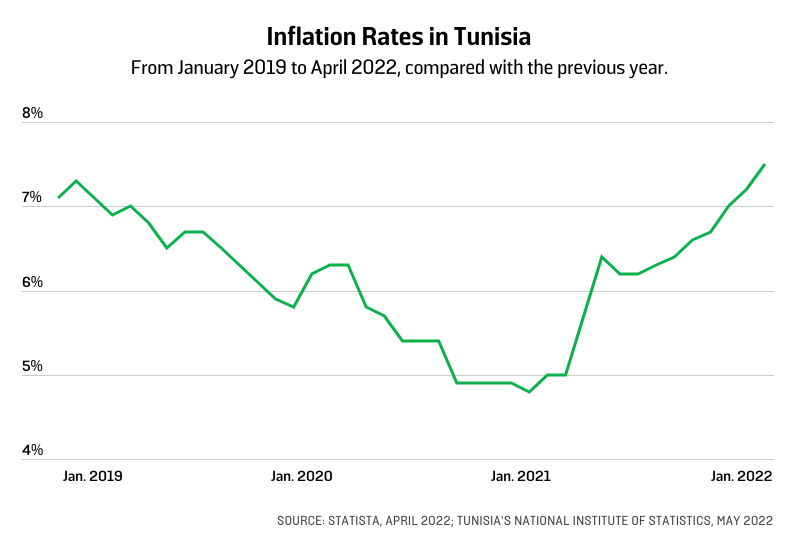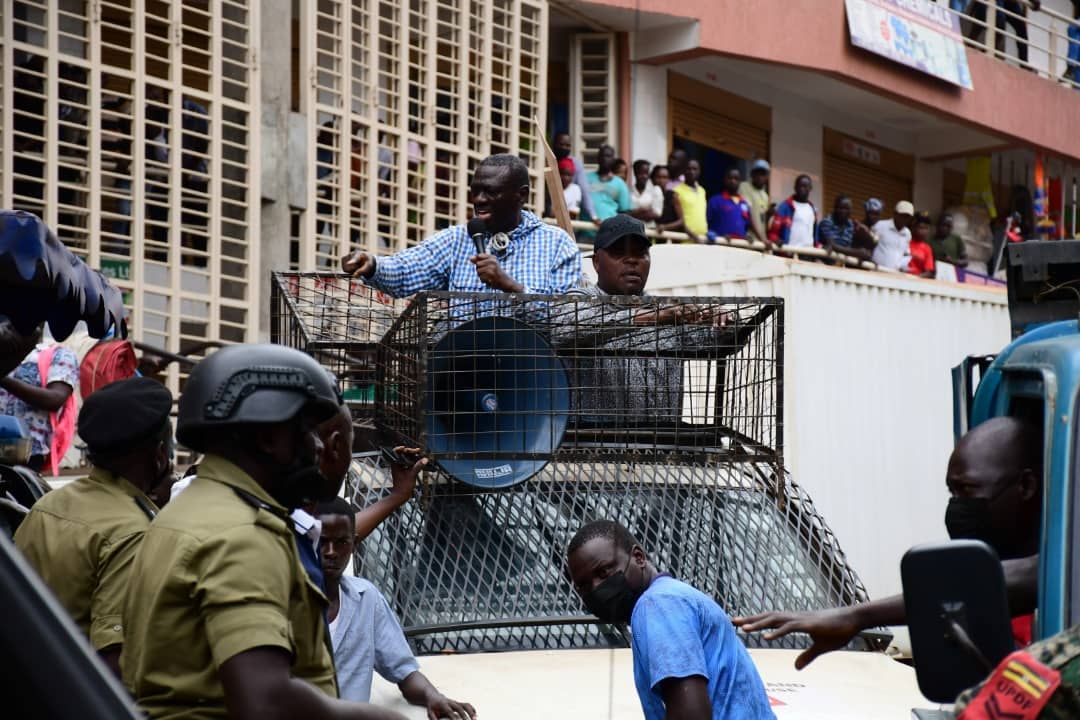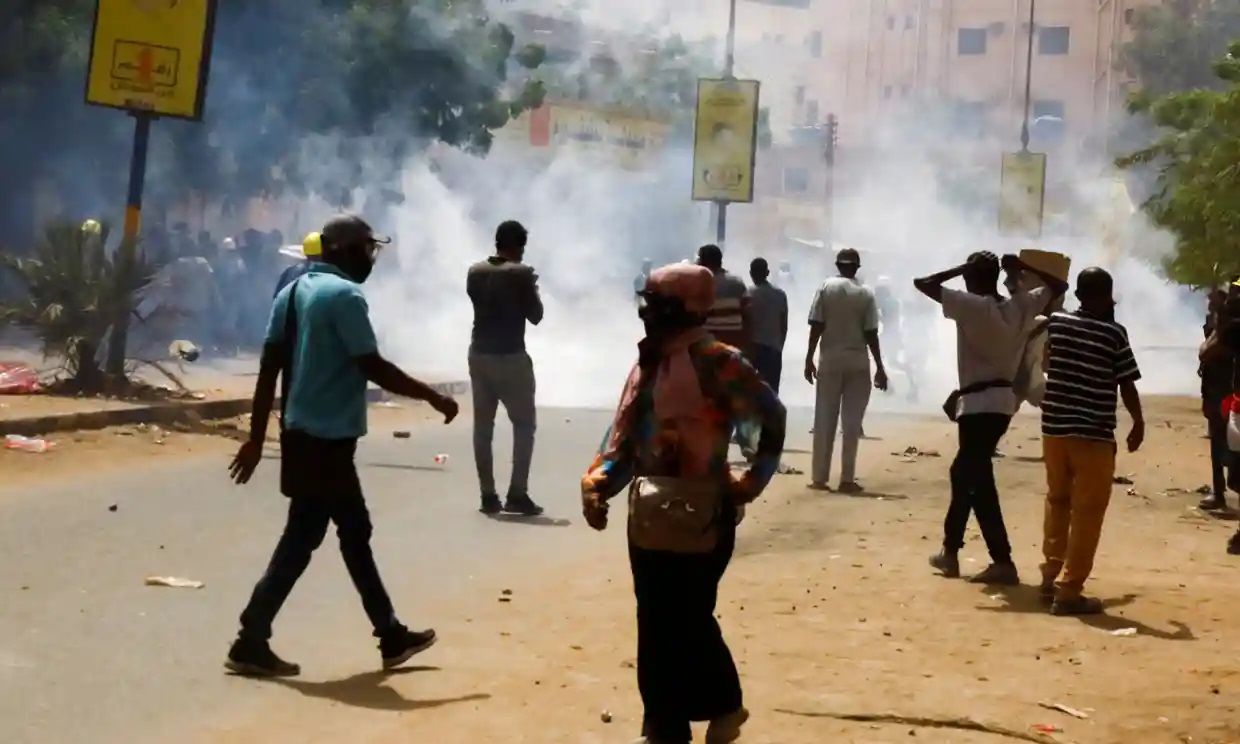【247 Every moment】We will not stop: What is happening in Tunisia, Uganda and Sudan
Tunisia's largest union to launch nationwide strike
The Tunisian General Union of Trade Unions (الاتحاد العام التونسي للشغل, UGTT), the largest trade union in Tunisia, announced on May 23 that it would hold a general strike on wages and the economy. With more than 1 million members, the union is the largest political force in Tunisia. In 2015, it was together with the Tunisian Industrial Trade and Handicraft Association (الاتحاد التونسي للصناعة والصناعات التقليدية التقليدية) and Tunisia Lawyer Association (الهيئة الوطنية للمحامين بتونس بتونس بتونس بتونس بتونس بتونس بتونس بتونس بتونس التقليدية التقليدية التقليدية التقليدية 201 201 201 201 201 201 201 201 201 201 201 201) (الحوار الوطني) for the Nobel Peace Prize.
The strike was announced after the Tunisian Federation of Trade Unions refused to participate in a national dialogue proposed by current Tunisian President Keith Said (قيس سعي). A union spokesman pointed out that the so-called national dialogue, unilaterally initiated by the president and excluding influential political actors in the country, could not resolve the crisis in Tunisia or plan a better future for it. The Tunisian Federation of Trade Unions has called for a meaningful and genuine national dialogue on political and economic reforms.
On July 25, 2021, Said dissolved the Tunisian parliament, citing "imminent danger", and has since dissolved the Supreme Judicial Council, which ensures the independence of the Tunisian judiciary. Critics have dubbed the move a "presidential coup." The move has the support of many Tunisians who believe that bringing Saeed to power will help end ongoing corruption and economic problems.

However, Tunisia's economy continues to deteriorate, with inflation in the country now surpassing its March 2019 peak. Tunisia's budget deficit will widen to 9.7% of the country's GDP in 2022, hit by rising international food and energy prices. Saeed's government is in talks with the International Monetary Fund over economic aid, but progress has been slow. The Tunisian Federation of Trade Unions also opposed proposed cuts in government spending in the negotiations.
In 2011, unprecedented demonstrations broke out in Tunisia due to high unemployment, corruption, lack of political freedom and other reasons, leading to the resignation of President Ben Ali (زين العابدين بن علي), who had been in power for 23 years. Driven by the "Quartet of National Dialogue", Tunisia has drawn up a new constitution. But political reforms have not driven economic reforms, and critics say Tunisia's old, minority-controlled economic structure has not changed.
Ugandan opposition politician Kissa Besigye arrested
On May 24, Ugandan opposition politician Kizza Besigye was arrested in downtown Kampala, the capital of Uganda. This is his fourth arrest since 2022 for protesting against rising prices for basic goods.

Besigye, the former chairman of the Forum for Democratic Change in Uganda, was greeted warmly by the crowd when he arrived in the city centre. He held placards holding "We can't breathe, lower the cost of living" and "Change now" calling on people to "take action against skyrocketing commodity prices". The police then arrived at the scene and arrested him. Police had previously set up a peripheral card at his home, preventing him from going to the city centre.
Uganda's food and raw material import costs have been rising in recent months due to the global supply chain crisis. However, Ugandan President Yoweri Kaguta Museveni said on May 23 that the government would not interfere in the economy. He called on citizens to replace wheat with "cheap food" such as wheat and corn. Yoweri Museveni has been the president of Uganda since 1996. His son recently expressed interest in succeeding him as Uganda's president.
Sudanese army opens fire on protesters
On May 23, the Sudanese army fired tear gas and canisters at demonstrators in Sudan's capital Khartoum (الخرطوم) and other places, killing one person and injuring 113 others. Since the Sudanese army staged a coup in October 2021, 96 protesters have been killed and more than 1,500 arrested.
Demonstrations erupted in Sudan in 2019 to protest the rule of Omar al-Bashir (عمر حسن احمد البشي), who has ruled the country for 30 years. The Sudanese army then arrested him and announced democratic elections in two years, after which a sovereign council, which shares power between the army and civilians, would be established. On October 25, 2021, the Sudanese military launched a military coup to arrest senior government officials, including Prime Minister Abdullah Hamdok (عبدالله حمدوك), and declared a state of emergency in Sudan.
In 2021, the military was supposed to completely withdraw from the Sovereign Council, but it said "infighting between the military and civil parties threatens the stability of the country", and the military will continue to complete the democratic transition until the leadership of the country is handed over to Elected government. Demonstrations ensued in the country, with people chanting "Retreat is not an option!" The army then opened fire on the demonstrators.
Former prime minister Hamdok was reappointed as prime minister in November 2021 as part of a subsequent civil-military agreement, but he was unable to form a new cabinet during his term. But on January 2, 2022, he resigned amid a violent crackdown on pro-democracy protests.

In recent months, the Sudanese army has stepped up its search for protesters. In less than two weeks, 80 people linked to the protest movement were detained. Many are held in prisons across the country hundreds of kilometers from their homes. Osman Basri of the Emergency Lawyers' Association in Khartoum said: "The authorities believe the arrests will have an impact on the momentum of the protests. But the resistance committee will continue to exercise peace under pressure The right to protest. We will not stop until a civilian government is established.”
(Editor in charge: New Bremen)
Like my work? Don't forget to support and clap, let me know that you are with me on the road of creation. Keep this enthusiasm together!
